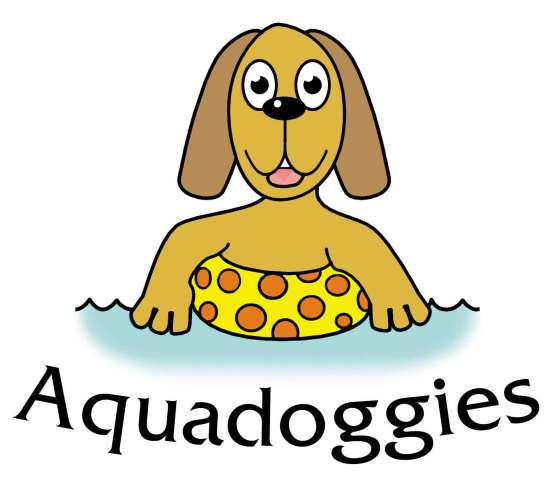
Why Hydrotherapy?
All animals can swim by instinct. How much they enjoy it depends on their confidence in the water and this can be increased by gradual acclimatisation.
Controlled swimming helps to improve:
Cardiovascular stamina
Muscle tone
Range of movement (aiding recovery from injury or surgery)
Greater fitness (especially in the management of obesity)
Muscle wastage begins within 3 days of any immobilisation so to prevent further weakness or injury it is important to rebuild, through safe exercise, any muscles that have deteriorated.
It is better to treat dogs in heated water since cold water causes constriction of the blood vessels near the skin and to the superficial muscles (those just under the skin) which restricts the flow of blood making the muscles less efficient.
Hydrotherapy is also considered to be a natural anti-inflammatory through its ability to reduce tissue swelling.
Hydrotherapy in conjunction with veterinary treatment can significantly improve the quality and rate of healing following surgery or traumatic injury. Post surgery the careful use of hydrotherapy can help with rehabilitation and increase the chance of a successful return to full fitness.
Hydrotherapy has specific therapeutic effects on body tissues
Safe Exercise without Stresses / Muscle strengthening and maintenance
Hydrotherapy is an excellent form of exercise because most of the muscles used in daily movement are involved - without the stresses caused by motion on hard ground. On land, each footfall creates a shock wave which travels up the limb and is absorbed by bones, tendons and joints. While these stresses are necessary to maintain healthy strong bone, if these shock waves are severe or repetitive they can actually damage or weaken the limb, particularly an arthritic joint or one recovering from an injury or surgery. Hydrotherapy allows the "working out" and strengthening of the muscles while avoiding this potentially damaging concussion. Due to the increased resistance of movement created by the water, the muscles have to work harder than they would do on land.
Increased Circulation of Blood to the Muscles / Increased Tissue Healing
Warm water increases the circulation of blood to the muscles, increasing the supply of oxygen and nutrients and flushing away waste products, leading to muscle relaxation and a reduction in pain and stiffness. Improved circulation reduces swelling around an injured area and enhances healing.
Relief of Pain, Swelling & Stiffness
The buoyancy effect of water reduces the load on weight bearing joints which helps to reduce pain and allows easier movement and exercise. Hydrostatic pressure applied to the body in water can assist in reducing swelling, and as the pressure increases with depth this encourages fluid swelling (oedema) in the limbs to move away from affected areas, immersed lower in the water back towards the body. This is assisted by exercising the limb to enhance circulation. Buoyancy and hydrostatic pressure also help to support the body during exercise; this can aid the re-education of gait patterns in neurological conditions and reloading of a limb post-surgery.
Increased Range of Movement
A decreased range of motion can often be due to pain, swelling, or stiffness. Buoyancy can help to gently encourage stiff joints into an improved range of movement with minimal additional pain; increasing flexion and extension when in the water allows further range of movement generally when back on dry land.
Muscle Strengthening
Hydrotherapy tones most of the major muscle groups and improves the general overall fitness of the dog. Movement in water is more difficult due to the resistance of the water. Water based exercise uses 30% more oxygen than similar land based exercise. By encouraging pain free limb movement against the resistance of water, muscle bulk will increase and thus muscle wastage will be reversed.
Cardiovascular fitness
In water the heart needs to work harder in order to meet the increased demand for nutrients by all the muscles, which are being worked, this sounds like hard work - it is - and that's the idea! For most dogs a short hydrotherapy session is an extremely challenging workout. However the buoyancy of the water and the fact that sudden twists, stops and falls are impossible makes hydrotherapy a safe and effective form of exercise and it's also very enjoyable for most animals. Whilst immersed in water the chest is subjected to the effects of hydrostatic pressure; this means that every breath requires more effort. In particular muscles used for breathing in have to work much harder and as muscles strengthens with exercise this improves the whole respiratory system.
Swimming can be used as part of a planned fitness program.
Many racehorse trainers use swimming therapy as a regular part of their animals' fitness regime and have purpose built pools on their premises so that they can swim their animals regularly.
However all effective training programmes must contain the elements of stress that the animal is likely to face in competition. That is why, for example, showjumpers must practice jumping as well as improving their general fitness in terms of the cardiovascular and respiratory system. This is because bones are living tissue and adapt - "remodel" - in response to exercise. It is necessary to tell the bone where the areas of stress are going to be so that it can remodel and strengthen in preparation for "the event". This is why hydrotherapy should not be used on its own - swimming strengthens muscle but does little or nothing for bone. Your dogs must also have normal exercise on land in order to keep their bones strong.
GET VETERINARY ADVICE!!
Most dogs will cope quite happily with swimming as a form of exercise therapy. However in the case of an old or unfit animal, or one recovering from an injury or surgery you must get advice from your vet before taking it swimming.
If in any doubt at all - ASK YOUR VET!
What will swimming help with?
Most dogs will benefit greatly from hydrotherapy as a form of exercise. However it is essential to get advice from your Vet before taking your dog for treatment.
Any dog that requires improvements in: Core strength, proprioception, gait modification, flexion, extension, muscle bulk, cardiovascular and muscle endurance will benefit from hydrotherapy including those with:
Developmental Conditions
- Hip and Elbow dysplasia – especially useful for young dogs who are restricted to lead exercise
- OCD (Osteochondrosis Dessecans)
- Patella Luxation
Degenerative Conditions
- Osteoarthritis (DJD) primary and secondary to developmental conditions
Pre and Post Surgical cases
- Total Hip Replacement
- Femoral Head and Neck Excision (FHNE)
- Cranial Cruciate Rupture- TPLO/TTA/Lateral Suture
- Patella Luxation
Neurological Conditions
- Degenerative Myelopathy (CDRM)
- Spinal Stenosis
- Intervertebral Disc Protrusion/Degenerative Disc Disease
- Fibro-Cartilaginous Embolism (FCE)
- Cervical Vertebral Malformation
- Spinal Injury/Trauma/Shock
- Neuromuscular Disease
- Peripheral Neuropathies
Soft Tissue Injuries
- Ligament strain
-
Muscle strains/sprains
Obesity (weight loss in conjunction with diet)


